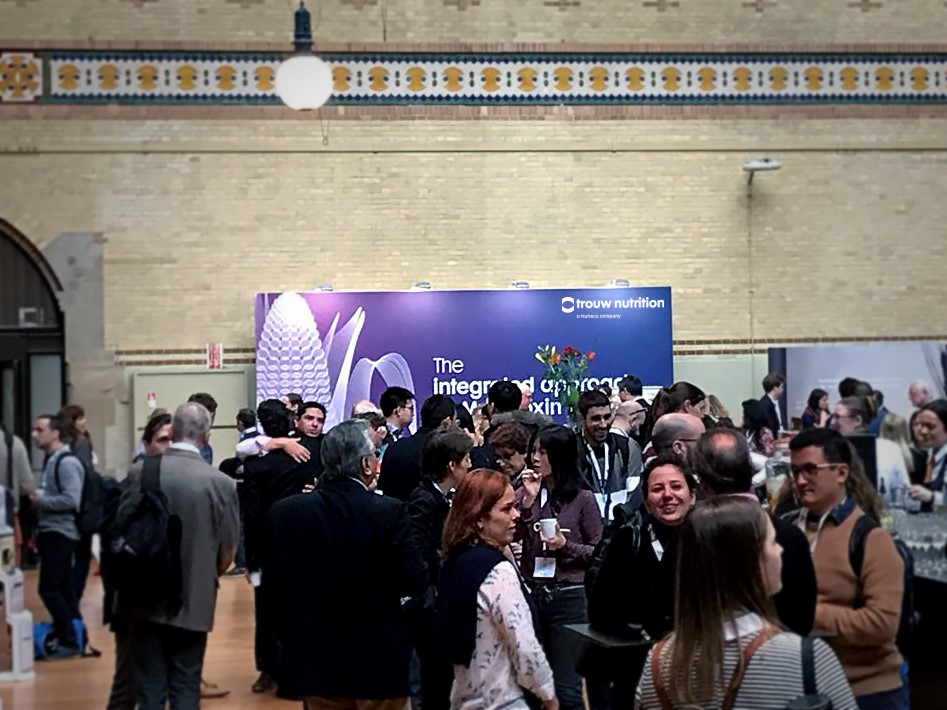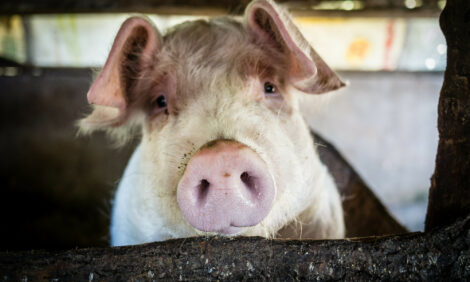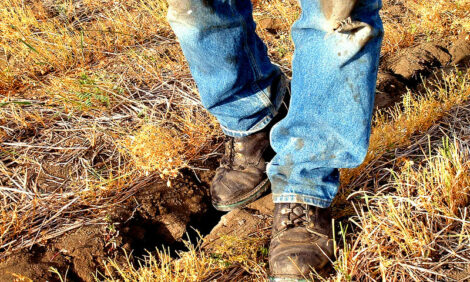



Your mycotoxin mitigation strategy
After the recent conclusion of the 10th World Mycotoxin Forum, Trouw nutrition discusses the importance of an effective mycotoxin mitigation strategy.Managing mycotoxin risk is a universal concern for producers due to its impact across the feed and food chain. The challenge is made even more complex by a tighter regulatory environment, as stated by Anthony Adeuya (FDA, USA) last week at the World Mycotoxin Forum conference. The increasingly global trade of commodities presents added complexity and makes early diagnosis and preventive risk evaluation even more important.

In 2017, Trouw Nutrition conducted a global analysis of mycotoxin risk, identifying specific challenges experienced by customers on five continents. The analysis supported the development of new data-driven tools to help customers define a more precise, informed and timely approach to mycotoxin risk management.
The research continues in 2018, and at the recently concluded 10th conference of The World Mycotoxin Forum, Trouw Nutrition researchers shared new insights and perspectives about the growing implications of mycotoxins’ impact on the feed and livestock industries.
The World Mycotoxin Forum is a leading international meeting where feed and food industry representatives meet with academia and government authorities from around the world.
Pedro Ramos Caramona, Global Programme Manager for Mycotoxin Risk Management at Trouw Nutrition, spoke at the conference:
Trouw Nutrition participation was paramount as we are actively developing strategies for prevention and control of mycotoxin contamination, as part of our efforts to ensure the safety and integrity of the feed and food supply.
In November 2017, Trouw Nutrition produced an analysis on the global presence of mycotoxins, reporting that mycotoxins were present in 68% of feed; up 6% from 2016. Trouw Nutrition acknowledged the significant challenges today’s producers face as they confront mycotoxins. These challenges include the increasingly global trade environment and a lack of efficient, cost-effective methods for testing and evaluating mycotoxin contamination levels. As an integral part of Trouw Nutrition’s feed, farm, health focus, the company’s approach to mycotoxin management addresses challenges across the feed and supply chain.
Caramona added:
Producers understand that there are no simple answers to the mycotoxin problem. An integrated approach has the best chance of success. The key is understanding the risk as the basis to define the mycotoxin mitigation strategy. That’s what the Mycotoxin Risk Management Programme aims to do.
The Mycotoxin Risk Management Programme is a four-step process that includes risk review, identification, assessment and control. Trouw Nutrition has developed resources to support each step.
Caramona explained:
With Trouw Nutrition’s Mycomaster on-site rapid analysis tool, we can measure actual mycotoxin contamination levels in the feedstuffs. And because each Mycomaster is connected to the NutriOpt Mycotoxin Adviser global database, we’re also able to assess mycotoxin conditions around the world which is especially important in a global marketplace.
If a mycotoxin contamination issue is found, Trouw Nutrition experts work with the producers to develop risk control measures. These measures can involve management techniques such as more frequent monitoring, changing ingredient purchasing strategies, or potentially adding a mycotoxin-binding solution.
Beyond analytical support, Trouw Nutrition continues to have a high commitment to in vivo research that explores how various feed additives can offset the effects of mycotoxins. During the World Mycotoxin Forum, Trouw Nutrition also shared results from two studies conducted in 2017 that examined the mitigating effects of smectites clay against aflatoxin B1 in poultry and swine.
As reported by Trouw nutrition







